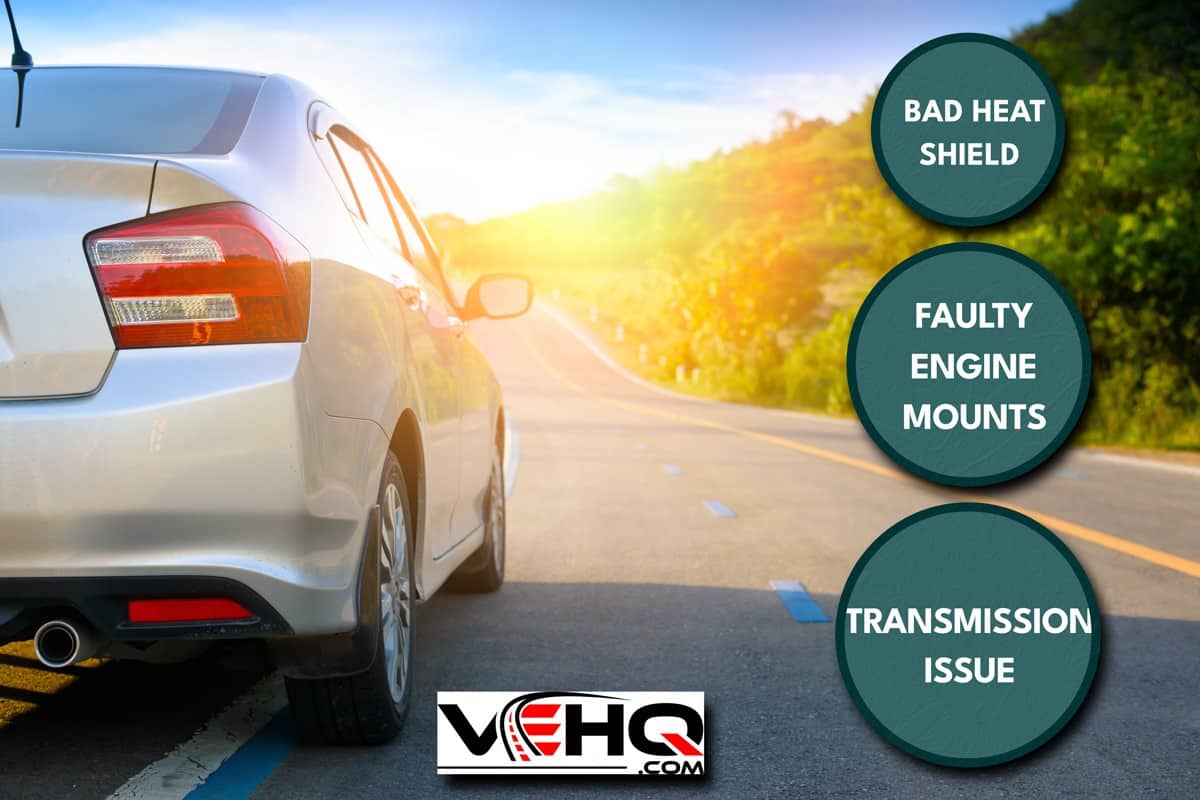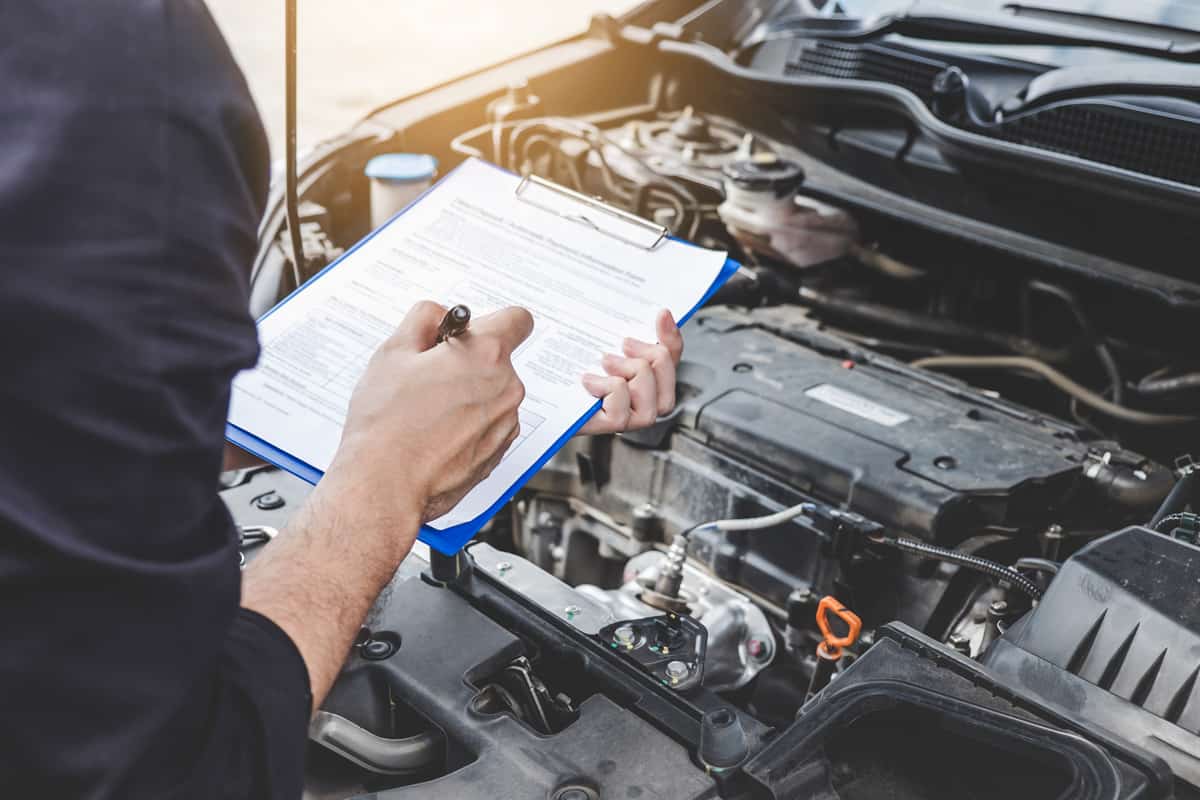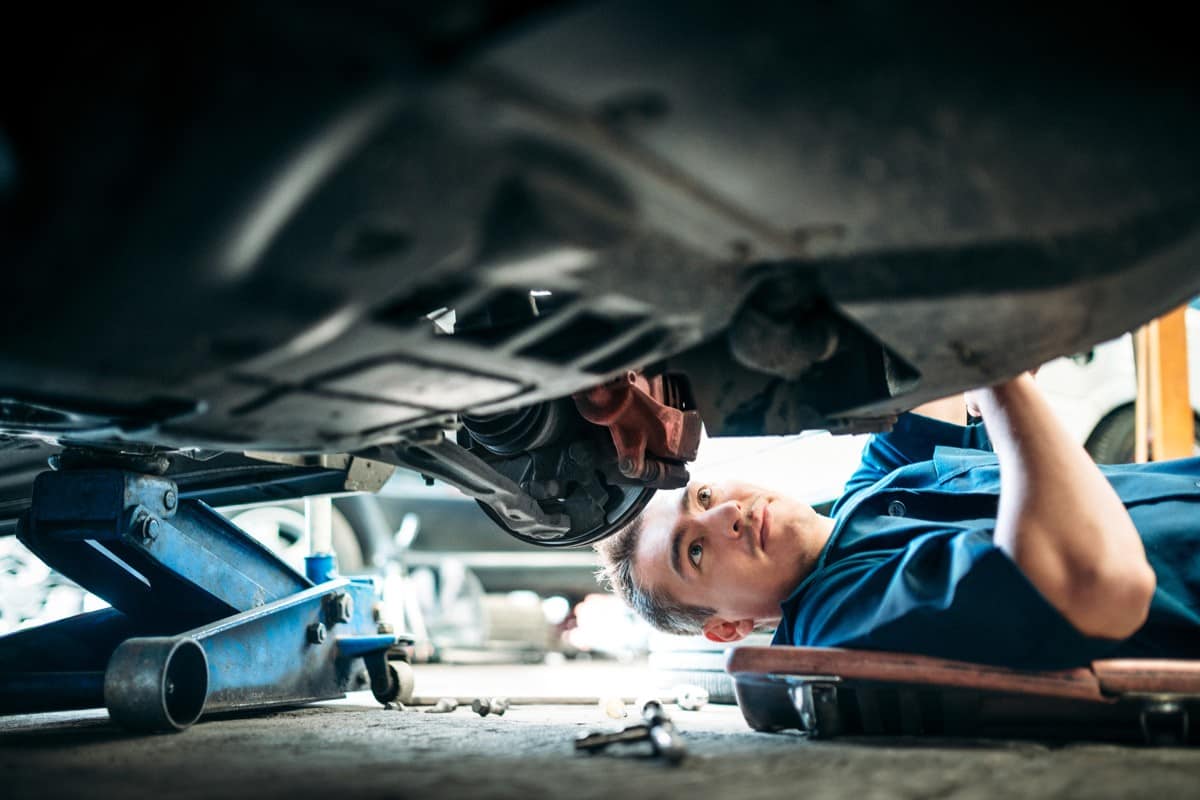As a car owner, you may have noticed some noise when accelerating uphill but are unsure of the cause. Luckily, we have consulted experts in this field and scoured the internet for answers. This is what we found out.
The problem of a car making noise when accelerating uphill could be a result of the following:
- Transmission issue
- Faulty engine mounts
- Problem with the valve train
- Bad heat shield
- Worn-out belt pulleys
Different problems can cause a car to generate noise when accelerating uphill, depending on the vehicle you are driving. Keep reading to get detailed information on what causes the problem and how it can be fixed.

What Could Be Wrong If A Car Makes Noise When Accelerating Uphill?

It is not okay for a vehicle to make noise when accelerating uphill. If this happens, there could be a problem that needs to be fixed. Here are possible causes of car noises when accelerating uphill:
Transmission Issue
Transmissions that lack lubrication will not function properly. Metal parts in a car's transmission will grind against each other if they aren't lubricated.
This might cause a rattling sound in the transmission when the gears wear out. These gears may eventually damage the transmission to the point where it will no longer function.
Faulty Engine Mounts
Damaged engine mounts can also cause noises when accelerating uphill. Engineers usually employ metal and rubber engine mounts to secure the engine in the engine bay and minimize vibrations. Bad engine mounts might also result in clunking noises when driving over potholes.
You can tell whether your vehicle's engine mounts are faulty by having an experienced mechanic raise your vehicle and inspect it. This problem shouldn't cost a lot to fix.
Problem With The Valve Train
A sticky valve train may be the source of the noise heard when accelerating uphill. This rattling sound, which some refer to as "carbon rap," can be brought about by worn-out or stuck valves and hydraulic lifters.
Premature igniting of the air and fuel combination inside the engine results in carbon rap. Additionally, using the incorrect fuel octane recommended for your car and using unclean oil may cause noise.
If you are certain that the valve train, which is situated on the top of the motor, is the cause of the rattling sound, you should check the oil in the engine.
Better still, replace the oil and check if the issue is fixed. Make sure you are using the right fuel with the appropriate octane level.
Bad Heat Shield
Faulty heat shields can also cause noises when accelerating uphill. Heat shields can be found in various places on your vehicle's exhaust system, depending on the type of vehicle. Rattling noises from under the car may indicate a faulty exhaust or heat shield.
Worn Out Belt Pulleys
Check for worn-out or broken belt pulleys if your car makes noise while you speed uphill. As the engine accelerates higher, the pulleys spin quicker. Even when the engine is idling, noises might also be heard from worn-out pulleys.

What To Do If My Car Makes Noise When Accelerating Uphill?
The source or causes of the noise will determine the types of repairs that need to be made. Here are different ways to tackle the problem of car noise during acceleration depending on the causes:
Refill Your Transmission Fluid
If your vehicle starts making noise when accelerating uphill, you should check your fluid level by lifting the hood and removing the lid. Refill the transmission fluid reservoir if the fluid level is low.
Fix Broken Belt Pulley
Broken belt pulley noises are typically simple to identify. With a few exceptions, they don't require a lot of money to fix. The vehicle works very well when the replacement belt has been put in place, and the appropriate amount of tension applied.
If you are accelerating uphill and hearing strange noises, you shouldn't wait until the problem worsens before seeking assistance. You can fix the problems by scheduling an appointment with a technician who will examine your car and resolve the issue.
Check For Exhaust Leaks
In the case of exhaust leaks, the leak should be located and then corrected. Most of the leaks require the repair of one or more components of the exhaust system. After that, carry out the second round of inspection to ensure there are no more leaks, and that the new pieces seal effectively.
Repair Drive Train
Repairing the drivetrain can be difficult. It is necessary to change some components when there is an issue with the drivetrain.
How Much Does It Cost To Fix A Rattling Noise When Accelerating?

The amount of money needed to repair a car that makes a rattling noise varies depending on which component is the source of the problem. You can expect to spend anywhere between $100 and $200 to fix less complex issues such as a worn-out pulley.
If the problem is more complicated and caused by a faulty torque converter or valve train, it could cost you at least $500.
An exact repair price can only be obtained after a mechanic has diagnosed the problem. After determining what has to be changed and how long it will take, they can give you an exact price.
Why Does It Sound Like Metal Rattling When I Accelerate?
This noise is most likely caused by a loose belt, which has resulted in metal-on-metal contact, causing friction.
Examine your engine and search for the pulley belt. Make sure to look for frayed edges, so you will know if it is the source of the problem. If the belt is damaged in any way, it should be replaced. However, you only need to tighten it back up if it is loose.
Additionally, transmission problems leading to the improper lubrication of engine components may cause metal-on-metal contact, resulting in rattling noise.

Why Do I Lose Power When Driving Uphill?
Losing power when driving uphill can be a result of different problems. Here are some reasons:
Dirty Air Filter
The contaminants may damage your engine if your air filter is clogged and cannot prevent impurities like debris from entering the inner combustion chamber.
You should clean your air filter often so air can freely pass through it and makes its way to the chamber without impurities. If the filter is clogged, the engine may function well on hills.
Vacuum Leak
Vacuum leaks usually affect cars at idle. But if the leak is severe, it may affect the car's functionality. To test for vacuum leaks, you can use a smoke test to ensure the air intake system is well sealed. This problem may cause run leaning as unmetered air enters the intake manifold.
Faulty Fuel Pump
A car lacks fuel when it runs well at idle and low loads but fails to function properly when more power is needed to climb a hill. Fuel pumps may get damaged due to sediment accumulation, age, or incorrect fuel.
Using your car when the gas tank is almost empty is not advisable. Fuel cools the fuel pump, so using your car with less than a quarter tank of gas for a long period of time may shorten the pump's lifespan.
Can Car Noise Lead To Breakdown?
The fact that your vehicle is making an odd noise does not indicate that it is at imminent risk of breakdown or a catastrophic failure.
Occasionally, an odd noise indicates a relatively minor problem with your vehicle and may not have an immediate impact on its performance.
The noise mostly signals an issue that, if left for a long time, would lead to more expensive repairs as the problem worsens over time. Also, the vehicle may become inoperable. When sections with bearings come apart, it can cause harm to other components of the engine.
To Wrap Up

Over time, certain parts of a car will wear out and begin to make noise. When performing repairs in this scenario, it's best to know what's causing the noise and where it's coming from.
If you enjoyed reading this post, here are similar articles you may like:
Car Gas Tank Making Noise - What Could Be Wrong?
